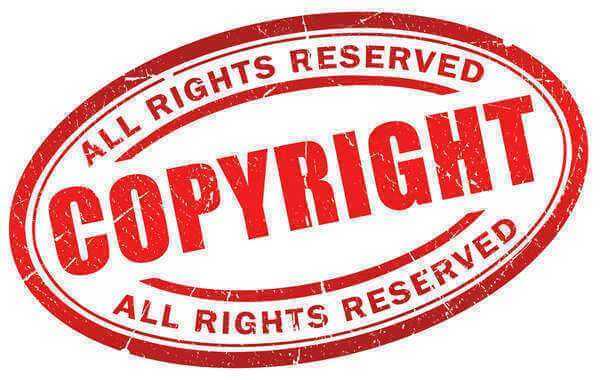This article has been written by Vinit Bagdai pursuing the Diploma in Intellectual Property, Media, and Entertainment Laws from LawSikho.
Table of Contents
Introduction
First, let’s talk about the concept of copyright in general; copyright ownership gives the owner the exclusive right to use the work, with some exceptions. When a person creates an original work, fixed in a tangible medium, he or she automatically owns the copyright to the work. In India and everywhere in the world there is a lot of confusion out on the Internet about what one can take from someone’s recipe and what. This article will address different aspects of protecting your recipes, blog posts, and culinary discoveries. This article will address to you; whether your recipes are protected under copyright laws or not.
What copyright law protects?
Copyright law protects the original works of authorship that are fixed in a tangible medium of expression. Hence, the work made should be original, independently created by a human author, and it should hold at least some minimal degree of creativity involved and also be set in an adequately permanent form. Recipes generally meet most of these requirements. For example, they are usually “fixed in a tangible medium of expression” factored by being noted/documented in a cookbook or website or on a piece of paper. However, despite meeting the maximum requirements, recipes are frequently not protected by copyright.
Essential ingredients for copyright
Expression is a vital ingredient for copyright. The Supreme Court in the R G Anand case approved with the finding in an English case that:
“Copyright does not subsist in ideas or schemes or methods; it is restricted to their expression only…………”
There cannot be copyright in a recipe since it only lists ingredients and a method; similar to that of ideas, facts and history which cannot be copyrighted. Yes, if the recipe is summarized into writing, it may have a copyright as a literary work. But this copyright will encompass only so far as to protect the text of the written recipe and not the underlying dish itself or its method of preparation. So, if someone prepares a dish using the same cookbook’s recipe, the owner of the cookbook cannot claim copyright over a dish because copyright protects the cookbook not the dish itself. Literary, dramatic, musical and artistic works along with cinematography and sound recordings are the works in which copyright subsists and they are protected under Section 13 of the Copyright Act, 1957. While looking at the definitions of these works under section 2, it’s tough to imagine a work where a recipe i.e., method of preparation of food or drink, will be appropriate. So, keeping jurisprudence aside, our statute doesn’t have any room for entertaining the idea of a copyright in a food recipe. The same will apply in the case of a cocktail recipe.
Can you copyright your recipes?
Copyright does not protect the idea itself. So, the essence of a dish which is captured via a specific mixture of ingredients that creates the flavor, cannot be copyrighted under copyright laws. Any person is free to recreate the same flavor without any fear of infringing copyright. Just listing the ingredients or explaining the various phases of a recipe cannot be seen as adequate grounds for copyright, since they would simply be seen as facts. However, a unique expression of the recipe can be termed as a ‘literary work’ that falls within the scope of copyright protection. If you have a food recipe which is innovative and has a creative step in it and it is more than just a procedure of making a particular dish or product, then intellectual property will get protection under patents. Anyone can protect their recipe (or a book of recipes) to create ownership over it and have a date stamp on the same, then copyright is the way forward for the same. However, there are certain risks in filing a patent for a food recipe. If such a recipe is unique/creative, then you stand the danger of losing the same in mere 20 years, because once the patent expires, then the method will fall into public domain and anybody can use it without permission. That’s one of the reasons why some of the best know recipes for instance the recipe for Coca-Cola is not protected by a patent rather it is protected as a trade secret.
An interesting case with respect to the copyright in recipes
In recent time, a case was registered in the U.S., (Sugar Hero Vs. Food Network Copyright Infringement Case) in which Food Network was used for copyright infringement by an independent food blogger/entrepreneur. Upon examination of the IP Kat coverage of the issue including, the factual background supporting the claim becomes clear.
Facts of the case
Sugar Hero is a site run by blogger Elizabeth Labau. Through this site, she shares her creative, different, self-made recipes in different ways which includes videos, pictures, etc. This site is her key source of revenue, which is generated via advertisements and affiliate sales. It is also said to have gathered a lot of helpful attention for Ms. Labau – and making it a full-time pursuit. She regularly develops her site herself, so that she can contend with different competitors in the food-TV market. She created one recipe which was a snow globe cupcake recipe, which became super popular amongst everyone. Subsequently, she published a video on her Facebook page describing how to make them (For the uninitiated – a Facebook-style “how-to” video is somewhat similar to the snow-globe cupcake video and these over here. It comprises a quick overview of the ingredients to be used, and bit-by-bit demonstration of the recipe and the usage of the elements in the recipe – there was no verbal command in the video; only a tune was being played in the background.
Later, a video was posted on the Food Network Facebook page which was similar; frame to frame copied from Elizabeth Labau’s Facebook page. When her appeals to be referenced in the video were overlooked, she brought the present suit. The plaintiff describes how the Food Network video had gained around 11,000,000 views – which could have gone instead to the plaintiff Facebook page, whose creative imprints were used in th
Law applied in the current case
Copyrights protect creative works of the author, and the two videos in this scenario would qualify as a creative work and they would be protected to a certain extent under copyright. Although, Section 102 of the Copyright Act (U.S. Law) mentions that copyrights do not safeguard “any idea, procedure, process, stem, method of operation, concept, principal, or discovery, regardless of the form in which it is described, explained, illustrated, or embodied such work.” Therefore, a ‘Snow Globe cupcake’ in this scenario will not get protection under copyright law.
Analysis
The inventions which are stated in Section 102 of the Copyright act mostly deal with subject matter for patents. In order to be qualified for a patent, the invention must be advantageous, innovative and non-obvious. Furthermore, in the U.S., an inventor has to file to patent within a period of 1 year from the date of first public disclosure or else the invention falls in public domain. In the snow globe cupcake scenario; most likely they were not patented. Thus, anyone could sell them, make or use them at their own discretion. Additionally, the copyright protection is going to be fairly very limited in Sugar Hero’s videos as the videos are generally completed in certain sequential steps and in a certain manner. Elizabeth Labau filed a copyright infringement lawsuit and seeks as much as $150,000 in damages. Food Network in this matter has not commented on the lawsuit, but the video is no longer available. Technically, one should avoid copying and pasting other’s videos on their social media platforms or at least give due credits to the original owner of the work.
Conclusion
So, to protect your recipe one can opt for a “Patent” to protect their recipe for a period of 20 years and then later the recipe will be in the public domain. One can also go for “Copyright” protection for protecting the recipe (or a book of recipes) to establish ownership over it and have a date stamp on it. And lastly one can also opt for “Trade secret” to protect their recipes just like Coca- Cola, KFC and other big companies did. Also, if the Chefs choose to disclose these secrets, they ensure that they entered into confidential agreements and non – disclosure agreements with third parties. Also, for trade secret, one can include a non-compete clause in all your contractor or employment agreements, as well as asking them to sign a confidentiality agreement. With some prudence planning and by applying procedures before disclosing your valuable recipes, you can take important steps to evade the disaster of a lost or stolen recipe.
References
- https://paleoflourish.com/recipe-copyright/
- https://copyrightalliance.org/are-recipes-cookbooks-protected-by-copyright/
- https://legalvision.com.au/i-run-a-recipe-blog-what-do-i-need-to-know-about-copyright-protection/
- https://www.quickcompany.in/articles/can-food-recipes-be-protected-under-the-indian-law
- https://spicyip.com/2017/06/sugar-hero-v-food-network-copyright-infringement-of-how-to-food-videos.html
- https://www.cobizmag.com/copyright-infringement-and-the-snow-globe-cupcake-wars/.
Students of Lawsikho courses regularly produce writing assignments and work on practical exercises as a part of their coursework and develop themselves in real-life practical skills.
LawSikho has created a telegram group for exchanging legal knowledge, referrals, and various opportunities. You can click on this link and join:
 Serato DJ Crack 2025Serato DJ PRO Crack
Serato DJ Crack 2025Serato DJ PRO Crack










 Allow notifications
Allow notifications


